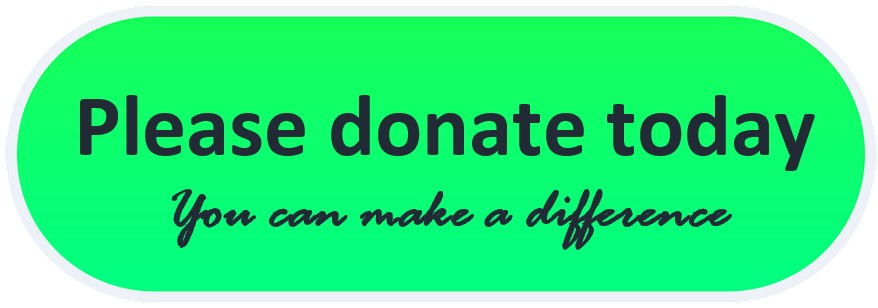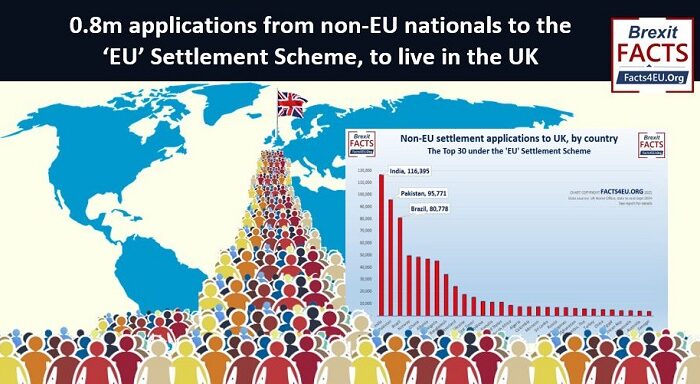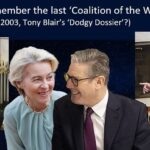‘Security begins at home’
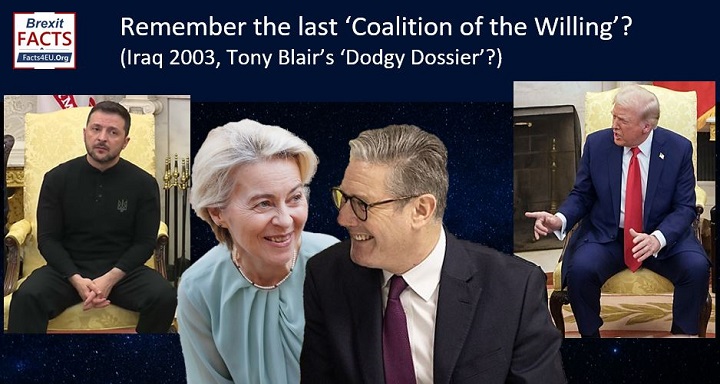
Much has been said about the on-going crisis in Ukraine and will continue to be said as events unfold. However, even in these early exchanges between the competing powers, some fundamental truths need to be spelt out.
The first and most painful, is that responsibility for Europe’s safety ultimately lies with Europe. Sheltering beneath the United States as an unequal contributor to NATO will no longer suffice.
‘Freedom is not free’
Nowhere is Europe’s lack of commitment to the cause of freedom more graphically exposed than in the woeful contributions of its 27 EU member states. While 2% of GDP per nation is a bare minimum needed to safeguard the continent’s security, our exclusive research indicates that only eight of the twenty-seven met that target. Even more shockingly, three out of four of Europe’s largest economies have failed to meet even that basic commitment (see chart below).
Given the parlous state of Europe’s defences, what are we to make of the Prime Minister’s call for a ‘coalition of the willing’ to come to Ukraine’s aid?
“With the PM talking of putting British boots on the ground in Ukraine and thereby putting the lives of British servicemen in harm’s way, it is only natural that the British public will want the facts before wishing to support whatever military plans the Government is considering – particularly in relation to the EU.”
What follows is a summary with a link to the full report beneath it.
Remember the last ‘Coalition of the Willing’? (Iraq 2003, Tony Blair’s ‘Dodgy Dossier’?)
Is Sir Keir’s new EU alignment more of a ‘Coalition of the Mostly-Unwilling and Militarily-Inadequate’?
Facts4EU presents an alternative to the PM’s rhetoric on Ukraine his latest EU pivot
Yesterday in London a meeting of 11 EU leaders and others was convened by Sir Keir Starmer to discuss Ukraine. After the meeting was called, it suddenly assumed even more importance following the dramatic exchanges which took place in the Oval Office on Friday between President Trump, Vice President J.D. Vance, and President Zelenskyy of Ukraine.
In the light of the wall-to-wall TV coverage at the weekend, (as if there were almost no other news), the Facts4EU think-tank raises a few awkward questions for Sir Keir Starmer and the Government. And in our ‘Observations’ below, we comment on whether President Trump ‘bullied’ President Zelenskyy on Friday, as has been claimed throughout the mainstream media.
Is Starmer trying to sound almost Churchillian?
Yesterday the Prime Minister gave a press conference following the meeting of the various leaders, in which he deployed portentous phrases such as a “crossroads in history”, a “coalition of the willing”, and having to do the “heavy lifting”.
In November 2002, US President George W Bush, in Europe for a NATO summit, stated: “Should Iraqi President Saddam Hussein choose not to disarm, the United States will lead a coalition of the willing to disarm him.”
History now tells us that the then Labour Prime Minister, Tony Blair, presented evidence to Parliament which became known as ‘the dodgy dossier’, detailing Saddam Hussein’s supposed programme of chemical and biological weapons manufacture. In the event, the US invasion of Iraq with the UK as its second partner in a ‘coalition of the willing’, found no evidence of this.
In this report we present an alternative to the rhetoric of Mr Starmer yesterday. With the PM talking of putting British boots on the ground in Ukraine and thereby putting the lives of British servicemen in harm’s way, it is only natural that the British public will want the facts before wishing to support whatever military plans the Government is considering – particularly in relation to the EU.
Who attended Sir Keir’s meeting?
The meeting was officially billed as the ‘Leaders Meeting on Ukraine, London, 2 March 2025’

“Today, I hosted counterparts from across Europe including Türkiye, as well as the NATO Secretary General and the Presidents of the EU Commission, EU Council and Canada, in London to discuss our support for Ukraine.”
– Sir Keir Starmer, London, Sunday, 02 March 2025
[Note from Facts4EU: Justin Trudeau is in fact the Prime Minister of Canada, not the President.]
According to Downing Street, the leaders of 16 countries attended, plus three leaders or representatives of non-EU countries, plus three leaders of organisations :-
- United Kingdom
- Ukraine
- France
- Germany
- Denmark
- Italy
- Netherlands
- Norway
- Poland
- Spain
- Canada
- Finland
- Sweden
- Czechia
- Romania
- Turkey
- NATO Secretary General
- President of the EU (‘European’) Commission
- President of the EU (‘European’) Council
Of the 16 countries represented, 11 were from the EU. The other five, including the UK, are members of NATO but apparently were not invited. Notable by their absence, were of course any representatives of President Trump’s administration.
Nor were there any representatives of the other 16 EU countries. Quite inexplicably, No.10 forgot to invite the leaders of the three EU Baltic countries: Lithuania, Latvia, and Estonia, and Sir Keir was forced to make an apologetic phone call to them after the meeting.
Sir Keir’s and No.10’s mistake is even harder to understand, given that the UK leads the Joint Expeditionary Force, an existing coalition of 10 countries including the three Baltic countries, where the UK has been deploying troops, fighter jets, and naval vessels since June 2018.
What was decided at this meeting?
It seems that nothing was agreed yesterday. There have been no statements outlining even the broadest of actions to be taken. Separately the UK made announcements about the provision of further weaponry to Ukraine, but this was not part of the meeting to plan a peace.
As for the composition of this ‘Coalition of the Willing’, it currently seems that no-one wishes to announce anything. In his press conference, Sir Keir referred to “the UK and France, and possibly one or two others.” This does not sound like a very impressive coalition.
In fact, with so many EU countries having spent so little on defence for decades, even if they did sign up they would not be much help.
Less a ‘coalition of the willing’ and more of a ‘coalition of the mostly-unwilling and militarily-inadequate’.
The EU Commission President also made a statement of her own…
EU Commission President Ursula von der Leyen, 02 March 2025
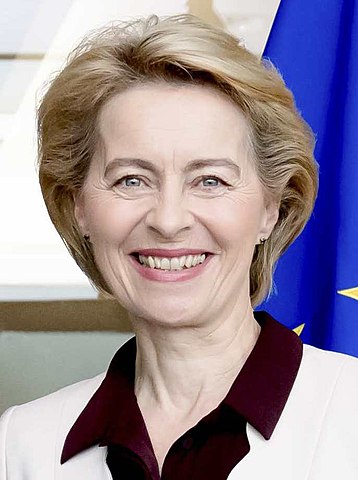
“We have discussed everything that is around peace through strength. And of course, security guarantees are of utmost importance for Ukraine. But we need comprehensive security guarantees.
“This includes that we have to put Ukraine in a position of strength, that it has the means to fortify and protect itself from economic survival to military resilience. “It is basically turning Ukraine into a steel porcupine that is indigestible for potential invaders.”
“The second element I brought to the table is that we urgently have to rearm Europe.”
“So how’s the re-arming of ‘Europe’ going, Frau von der Leyen?”
Below we show the latest position of the 24 EU countries who are also members of NATO, in relation to their defence spend in the last full year for which NATO published its estimates: 2023. This information comes from NATO’s report in June last year.
© Brexit Facts4EU.Org 2025 – click to enlarge
[Source(s) : NATO June 2024]
As can be seen, only eight out of the 27 EU countries managed to spend the NATO minimum of at least 2% of GDP on defence.
Some of these sub-2% countries are trying to catch up, but it is only in the last few years – since President Trump had his first term in office and lambasted EU countries for not doing what Sir Keir calls “the heavy lifting” – that we have seen some movement by these countries. The backlog of what they should have spent is now enormous.
Under 15 months ago, the overall average percentage of GDP spent on defence (1.92%) by EU countries who are also NATO members still stood at under the NATO minimum of 2%, at the end of 2023.
This is a summary CIBUK-Brexit Facts4EU article. The full report can be found here.
Main image: Montage © Facts4EU.Org 2025



